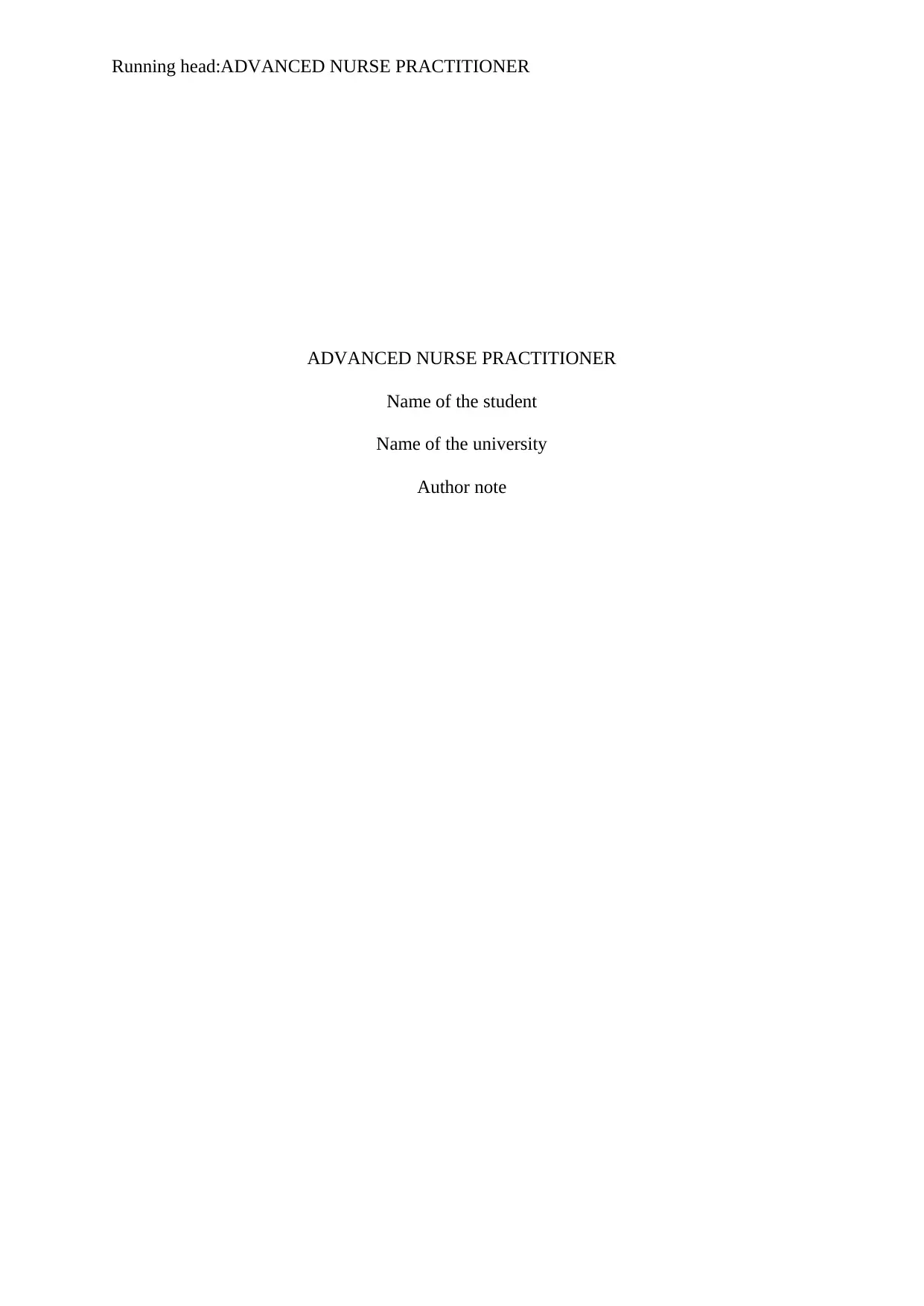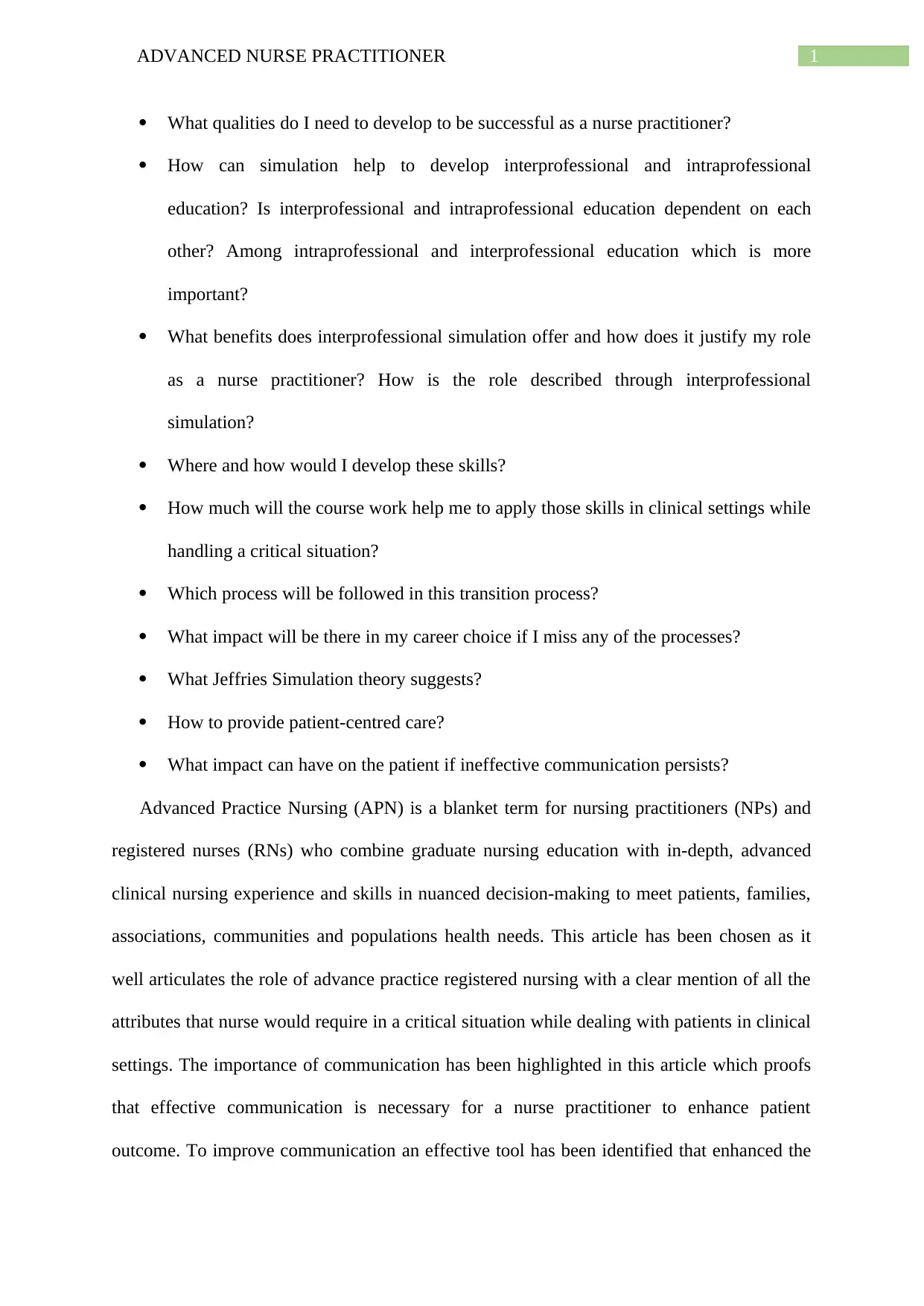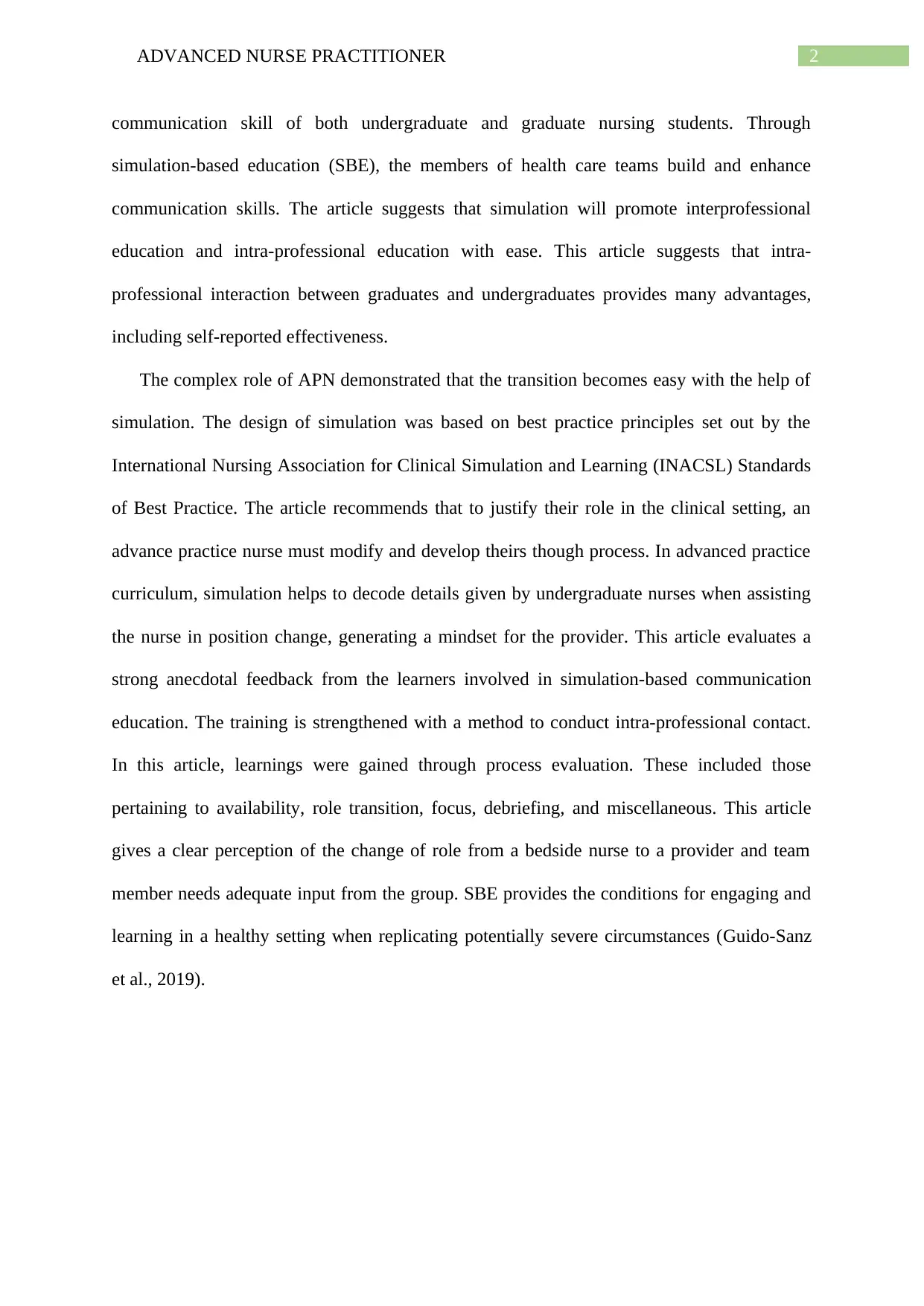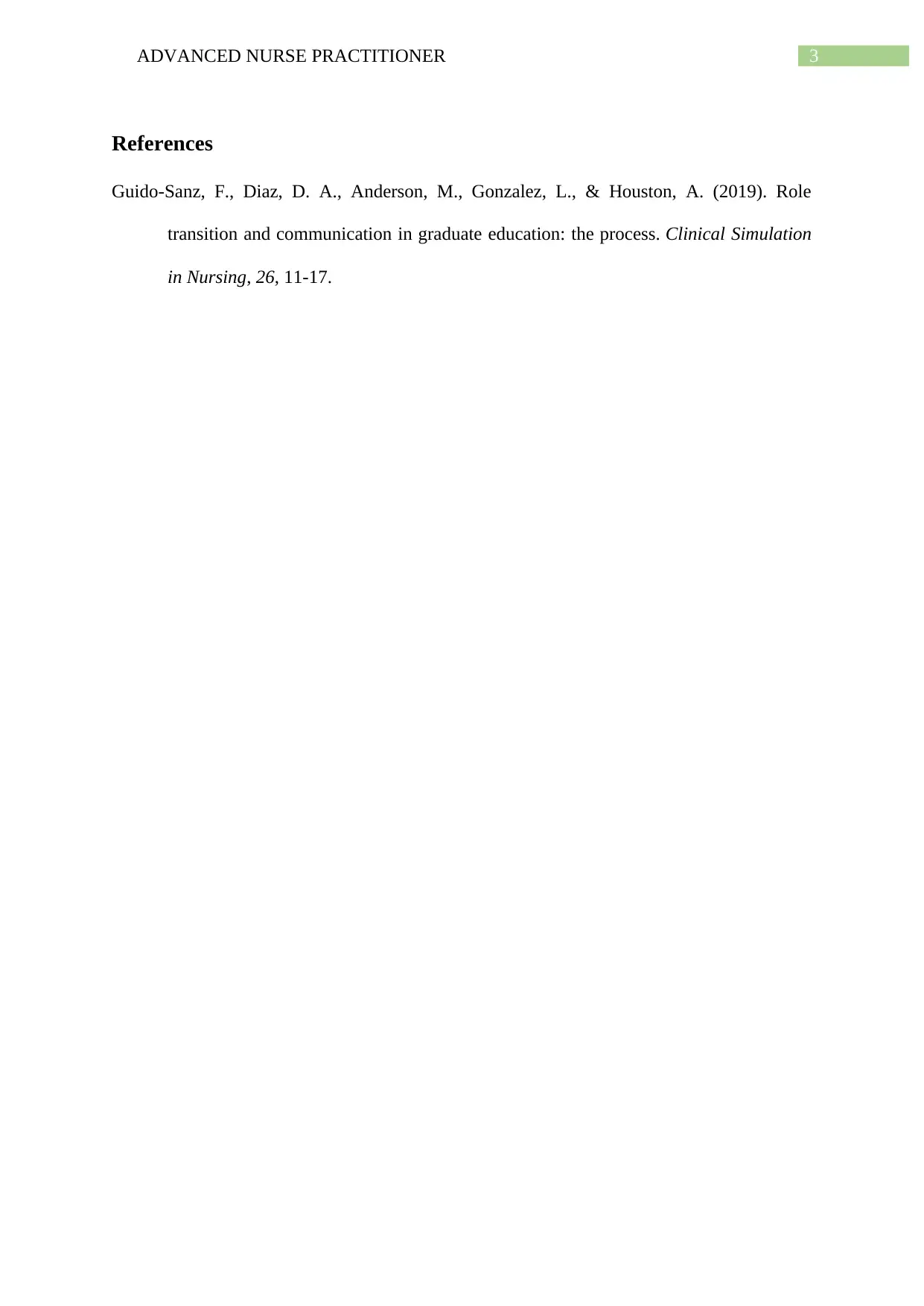N5341: APRN Role Transition Interview Questions and Article Analysis
VerifiedAdded on 2022/09/15
|4
|627
|20
Homework Assignment
AI Summary
This assignment focuses on preparing for an Advanced Practice Registered Nurse (APRN) job interview by developing ten relevant questions. The student selected a scholarly article discussing APRN role transition and used it as the foundation for the interview questions. The assignment requires the questions to be presented in a bulleted format, as if the student is asking them during an interview. Additionally, the student provides a brief synopsis of the chosen article, summarizing its key points and explaining the rationale behind its selection, adhering to APA format. The selected article emphasizes the importance of effective communication and the role of simulation in fostering interprofessional and intraprofessional education to improve patient outcomes and facilitate the transition from a bedside nurse to a provider role. The student also highlights how simulation helps in developing critical skills and decision-making abilities necessary for success in the APRN role.
1 out of 4











![[object Object]](/_next/static/media/star-bottom.7253800d.svg)